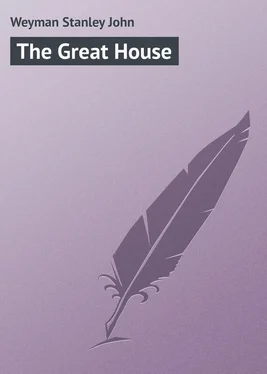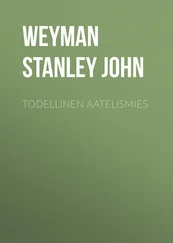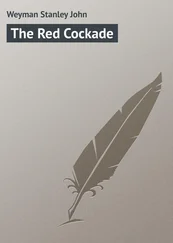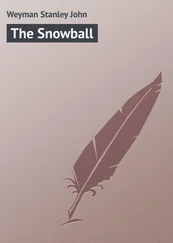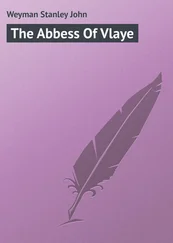Stanley Weyman - The Great House
Здесь есть возможность читать онлайн «Stanley Weyman - The Great House» — ознакомительный отрывок электронной книги совершенно бесплатно, а после прочтения отрывка купить полную версию. В некоторых случаях можно слушать аудио, скачать через торрент в формате fb2 и присутствует краткое содержание. Жанр: foreign_language, foreign_prose, на английском языке. Описание произведения, (предисловие) а так же отзывы посетителей доступны на портале библиотеки ЛибКат.
- Название:The Great House
- Автор:
- Жанр:
- Год:неизвестен
- ISBN:нет данных
- Рейтинг книги:4 / 5. Голосов: 1
-
Избранное:Добавить в избранное
- Отзывы:
-
Ваша оценка:
- 80
- 1
- 2
- 3
- 4
- 5
The Great House: краткое содержание, описание и аннотация
Предлагаем к чтению аннотацию, описание, краткое содержание или предисловие (зависит от того, что написал сам автор книги «The Great House»). Если вы не нашли необходимую информацию о книге — напишите в комментариях, мы постараемся отыскать её.
The Great House — читать онлайн ознакомительный отрывок
Ниже представлен текст книги, разбитый по страницам. Система сохранения места последней прочитанной страницы, позволяет с удобством читать онлайн бесплатно книгу «The Great House», без необходимости каждый раз заново искать на чём Вы остановились. Поставьте закладку, и сможете в любой момент перейти на страницу, на которой закончили чтение.
Интервал:
Закладка:
To Mary Audley, who saw it at its best, the very stains of the plaster glorified by the morning light, it was a thing of joy. She fancied that to live behind those ancient mullioned windows, to look out morning and evening on that spacious landscape, to feel the bustle of the world so remote, must in itself be happiness. For a time she could not turn from it.
But presently the desire to explore her new surroundings seized her and she re-entered the house. A glance at the groined roof of the hall-many a gallant horseman had ridden under it in his time-proved that it was merely the archway closed and fitted with a small door and window at either end. She unlocked the farther door and passed into a paved court, in which the grass grew between the worn flags. In the stables on the left a dog whined. The kitchens were on the other hand, and before her an opening flanked by tall heraldic beasts broke a low wall, built of moss-grown brick. She ventured through it and uttered a cry of delight.
Near at hand, under cover of a vast chestnut tree, were traces of domestic labor: a grindstone, a saw-pit, a woodpile, coops with clucking hens. But beyond these the sward, faintly lined at first with ruts, stretched away into forest glades, bordered here by giant oaks brown in bud, there by the yellowish-green of beech trees. In the foreground lay patches of gorse, and in places an ancient thorn, riven and half prostrate, crowned the russet of last year's bracken with a splash of cream. Heedless of the spectator, rabbits sat making their toilet, and from every brake birds filled the air with a riot of song.
To one who had seen little but the streets of Paris, more sordid then than now, the scene was charming. Mary's eyes filled, her heart swelled. Ah, what a home was here! She had espied on her journey many a nook and sheltered dell, but nothing that could vie with this! Heedless of her thin shoes, with no more than a handkerchief on her head, she strayed on and on. By and by a track, faintly marked, led her to the left. A little farther, and old trees fell into line on either hand, as if in days long gone, before age thinned their ranks, they had formed an avenue.
For a time she sat musing on a fallen trunk, then the hawthorn that a few paces away perfumed the spring air moved her to gather an armful of it. She forgot that time was passing, almost she forgot that she had not breakfasted, and she might have been nearly a mile from the Gatehouse when she was startled by a faint hail that seemed to come from behind her. She looked back and saw Basset coming after her.
He, too, was hatless-he had set off in haste-and he was out of breath. She turned with concern to meet him. "Am I very late, Mr. Basset?" she asked, her conscience pricking her. What if this first morning she had broken the rules?
"Oh no," he said. And then, "You've not been farther than this?"
"No. I am afraid my uncle is waiting?"
"Oh no. He breakfasts in his own room. But Etruria told me that you had gone this way, and I followed. I see that you are not empty-handed."
"No." And she thrust the great bunch of may under his nose-who would not have been gay, who would not have lost her reserve in such a scene, on such a morning? "Isn't it fresh? Isn't it delicious?"
As he stooped to the flowers his eyes met hers smiling through the hawthorn sprays, and he saw her as he had not seen her before. Her gravity had left her. Spring laughed in her eyes, youth fluttered in the tendrils of her hair, she was the soul of May. And what she had found of beauty in the woodland, of music in the larks' songs, of perfume in the blossoms, of freshness in the morning, the man found in her; and a shock, never to be forgotten, ran through him. He did not speak. He smelled the hawthorn in silence.
But a few seconds later-as men reckon time-he took note of his feelings, and he was startled. He had not been prepared to like her, we know; many things had armed him against her. But before the witchery of her morning face, the challenge of her laughing eyes, he awoke to the fact that he was in danger. He had to own that if he must live beside her day by day and would maintain his indifference, he must steel himself. He must keep his first impressions of her always before him, and be careful. And be very careful-if even that might avail.
For a hundred paces he walked at her side, listening without knowing what she said. Then his coolness returned, and when she asked him why he had come after her without his hat he was ready.
"I had better tell you," he answered, "this path is little used. It leads to the Great House, and your uncle, owing to his quarrel with Lord Audley, does not like any one to go farther in that direction than the Yew Tree Walk. You can see the Walk from here-the yews mark the entrance to the gardens. I thought that it would be unfortunate if you began by displeasing him, and I came after you."
"It was very good of you," she said. Her face was not gay now. "Does Lord Audley live there-when he is at home?"
"No one lives there," he explained soberly. "No one has lived there for three generations. It's a ruin-I was going to say, a nightmare. The greater part of the house was burnt down in a carouse held to celebrate the accession of George the Third. The Audley of that day rebuilt it on a great scale, but before it was finished he gave a housewarming, at which his only son quarrelled with a guest. The two fought at daybreak, and the son was killed beside the old Butterfly in the Yew Walk-you will see the spot some day. The father sent away the builders and never looked up again. He diverted much of his property, and a cousin came into the remainder and the title, but the house was never finished, the windows in the new part were never glazed. In the old part some furniture and tapestry decay; in the new are only bats and dust and owls. So it has stood for eighty years, vacant in the midst of neglected gardens. In the sunlight it is one of the most dreary things you can imagine. By moonlight it is better, but unspeakably melancholy."
"How dreadful," she said in a low voice. "I almost wish, Mr. Basset, that you had not told me. They say in France that if you see the dead without touching them, you dream of them. I feel like that about the house."
It crossed his mind that she was talking for effect. "It is only a house after all," he said.
"But our house," with a touch of pride. Then, "What are those?" she asked, pointing to the gray shapeless beasts, time-worn and weather-stained, that flanked the entrance to the courtyard.
"They are, or once were, Butterflies, the badge of the Audleys. These hold shields. You will see the Butterflies in many places in the Gatehouse. You will find them with men's faces and sometimes with a fret on the wings. Your uncle says that they are not butterflies, but moths, that have eaten the Audley fortunes."
It was a thought that matched the picture he had drawn of the deserted house, and Mary felt that the morning had lost its brightness. But not for long. Basset led her into a room on the right of the hall, and the sight drew from her a cry of pleasure. On three sides the dark wainscot rose eight feet from the floor; above, the walls were whitewashed to the ceiling and broken by dim portraits, on stretchers and without frames. On the fourth side where the panelling divided the room from a serving-room, once part of it, it rose to the ceiling. The stone hearth, the iron dogs, the matted floor, the heavy chairs and oak table, all were dark and plain and increased the austerity of the room.
At the end of the table places were laid for three, and Toft, who had set on the breakfast, was fixing the kettle amid the burning logs.
"Is Mr. Audley coming down?" Basset asked.
"He bade me lay for him," Toft replied dryly. "I doubt if he will come. You had better begin, sir. The young lady," with a searching look at her, "must want her breakfast."
Читать дальшеИнтервал:
Закладка:
Похожие книги на «The Great House»
Представляем Вашему вниманию похожие книги на «The Great House» списком для выбора. Мы отобрали схожую по названию и смыслу литературу в надежде предоставить читателям больше вариантов отыскать новые, интересные, ещё непрочитанные произведения.
Обсуждение, отзывы о книге «The Great House» и просто собственные мнения читателей. Оставьте ваши комментарии, напишите, что Вы думаете о произведении, его смысле или главных героях. Укажите что конкретно понравилось, а что нет, и почему Вы так считаете.
